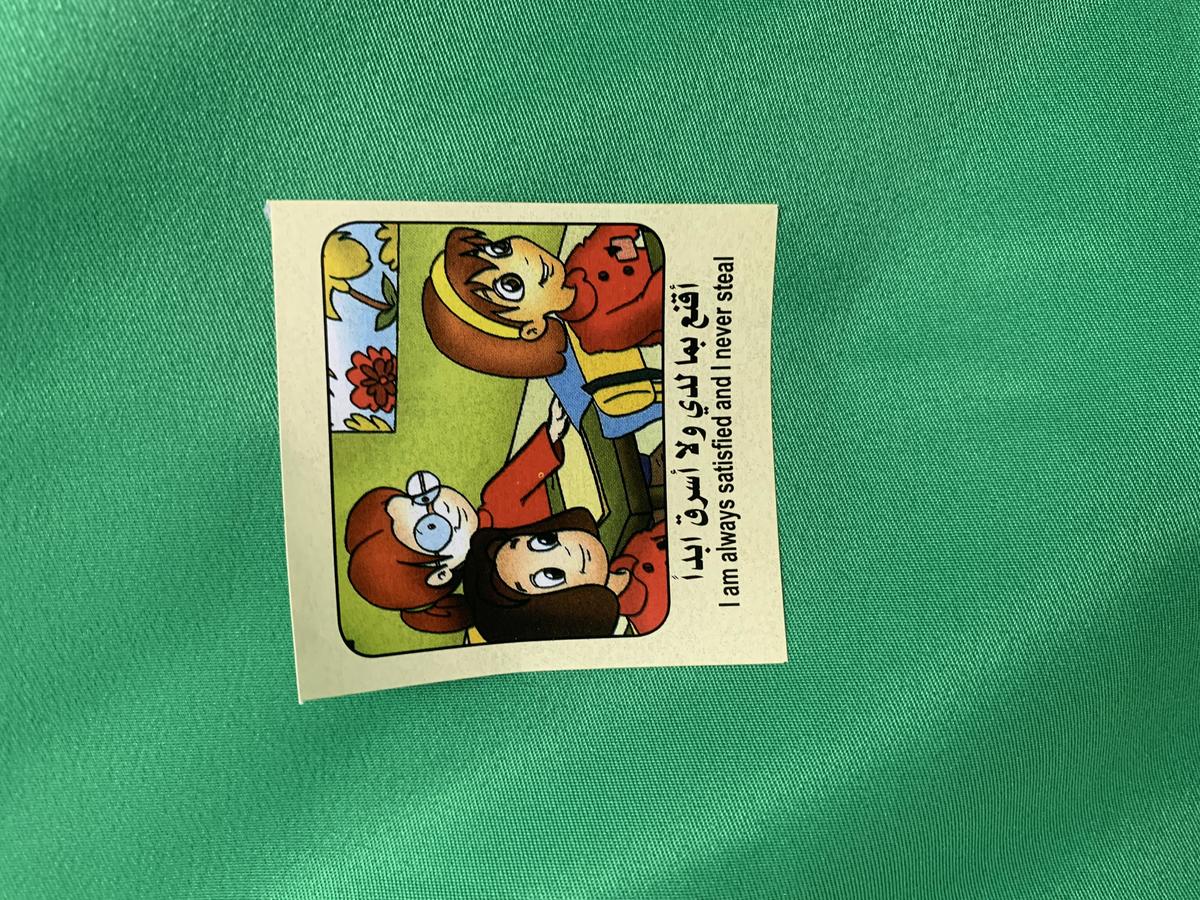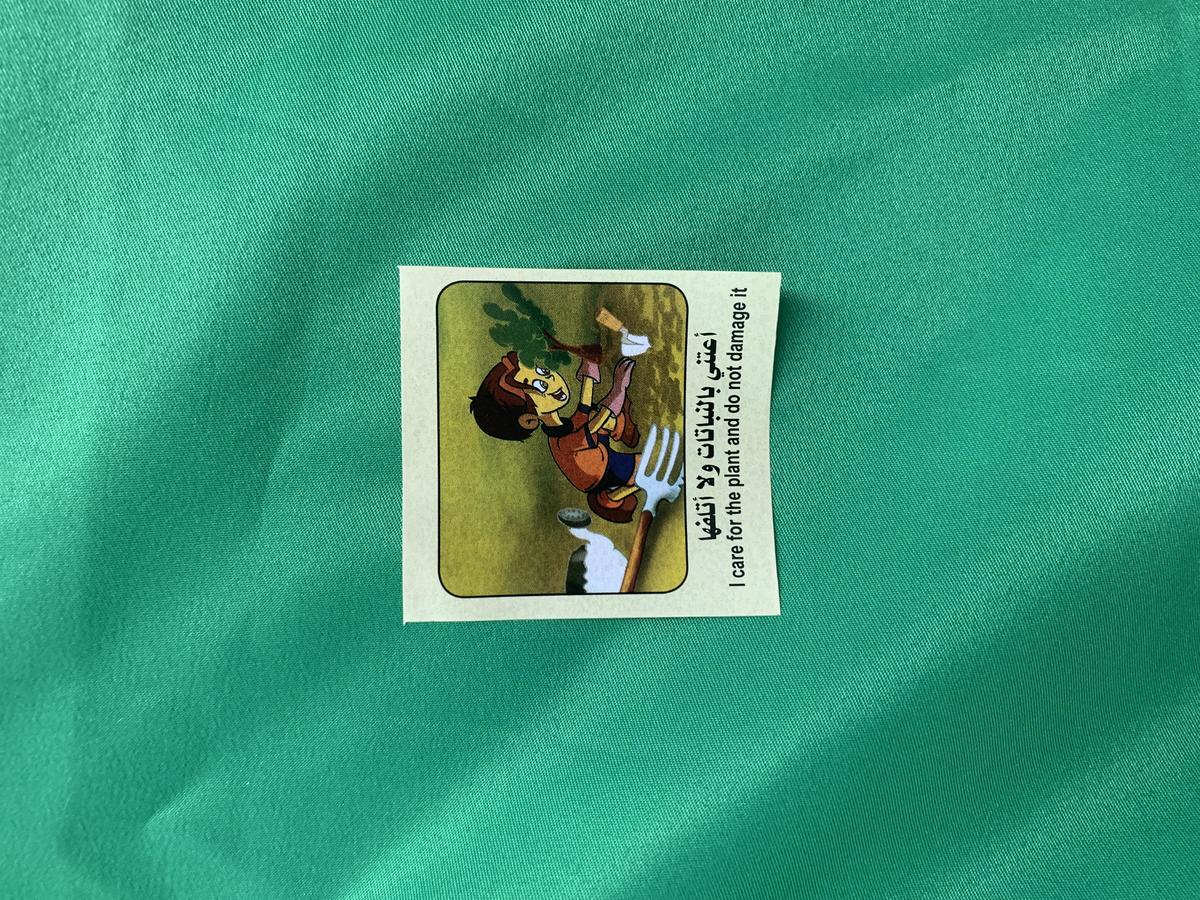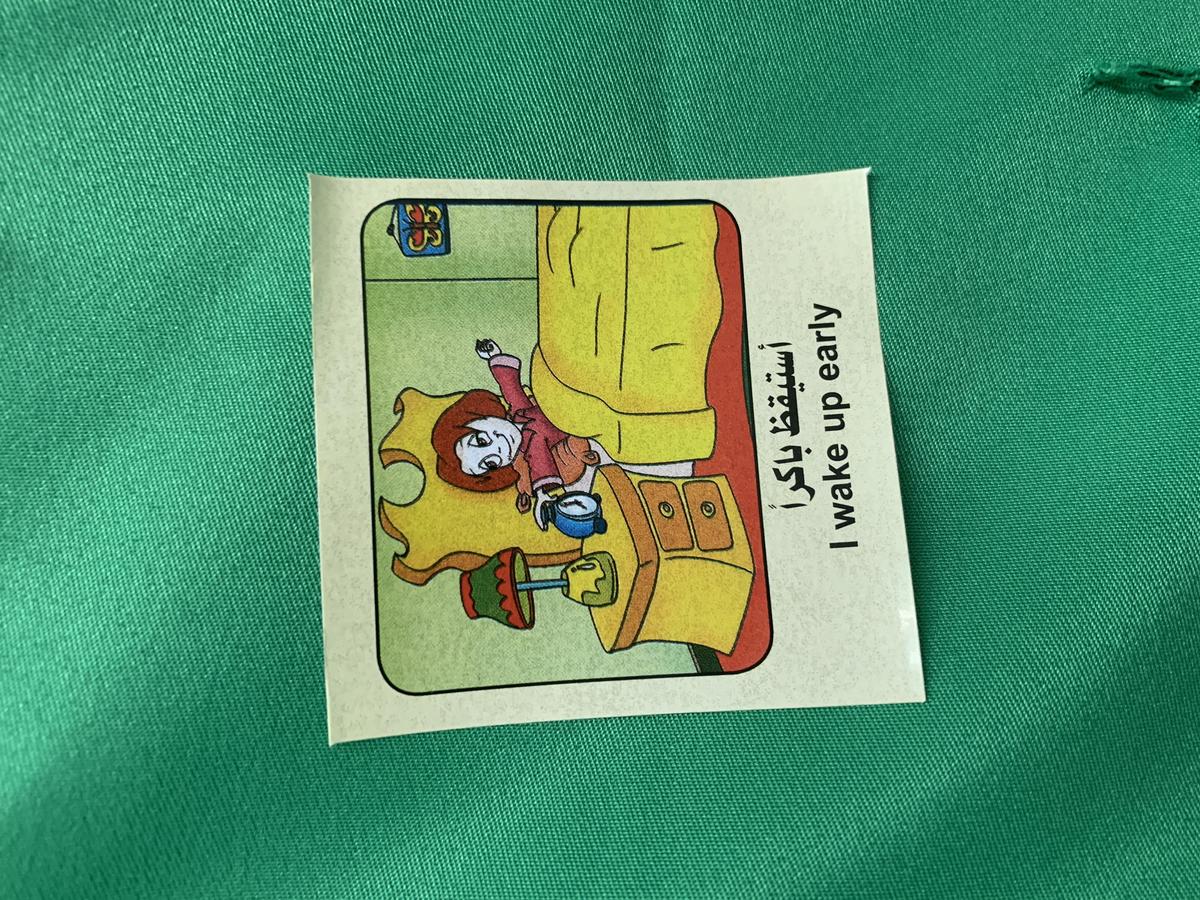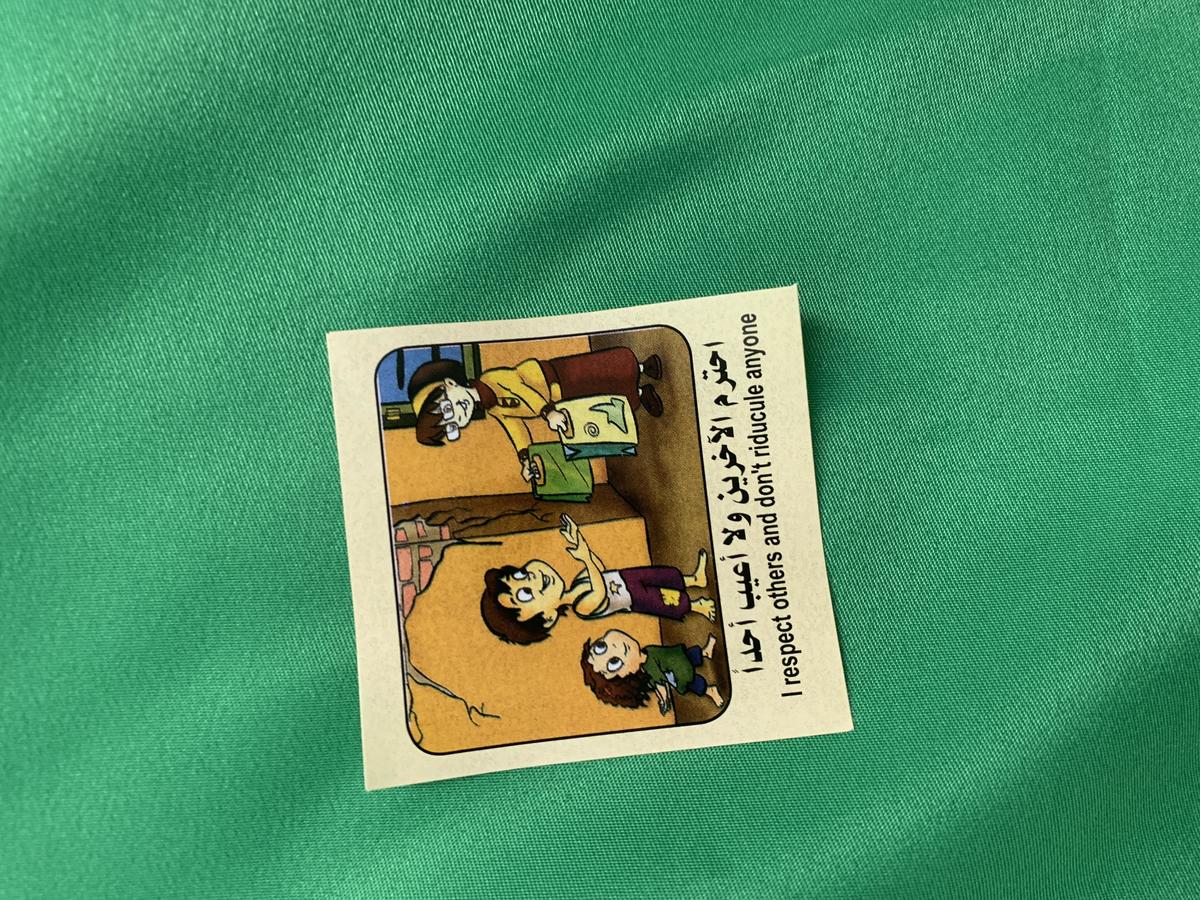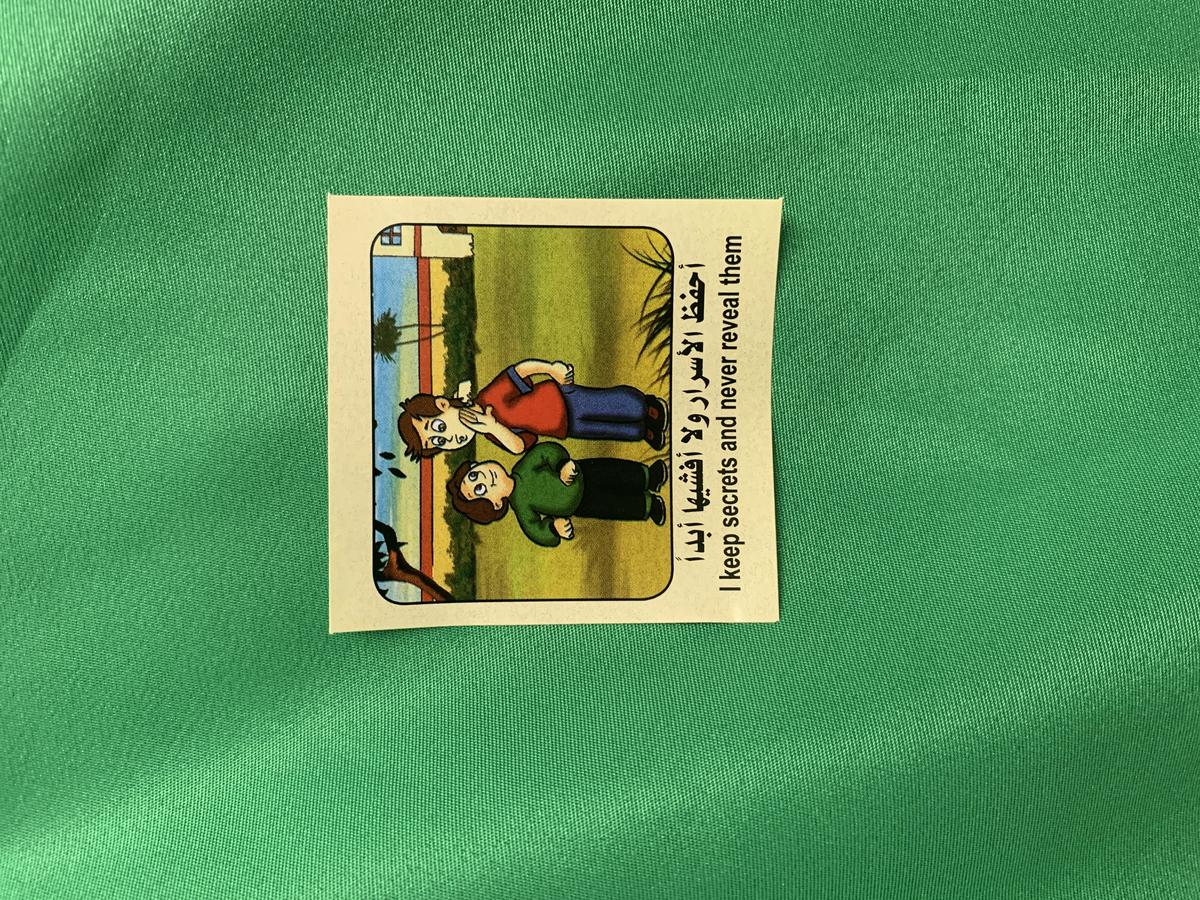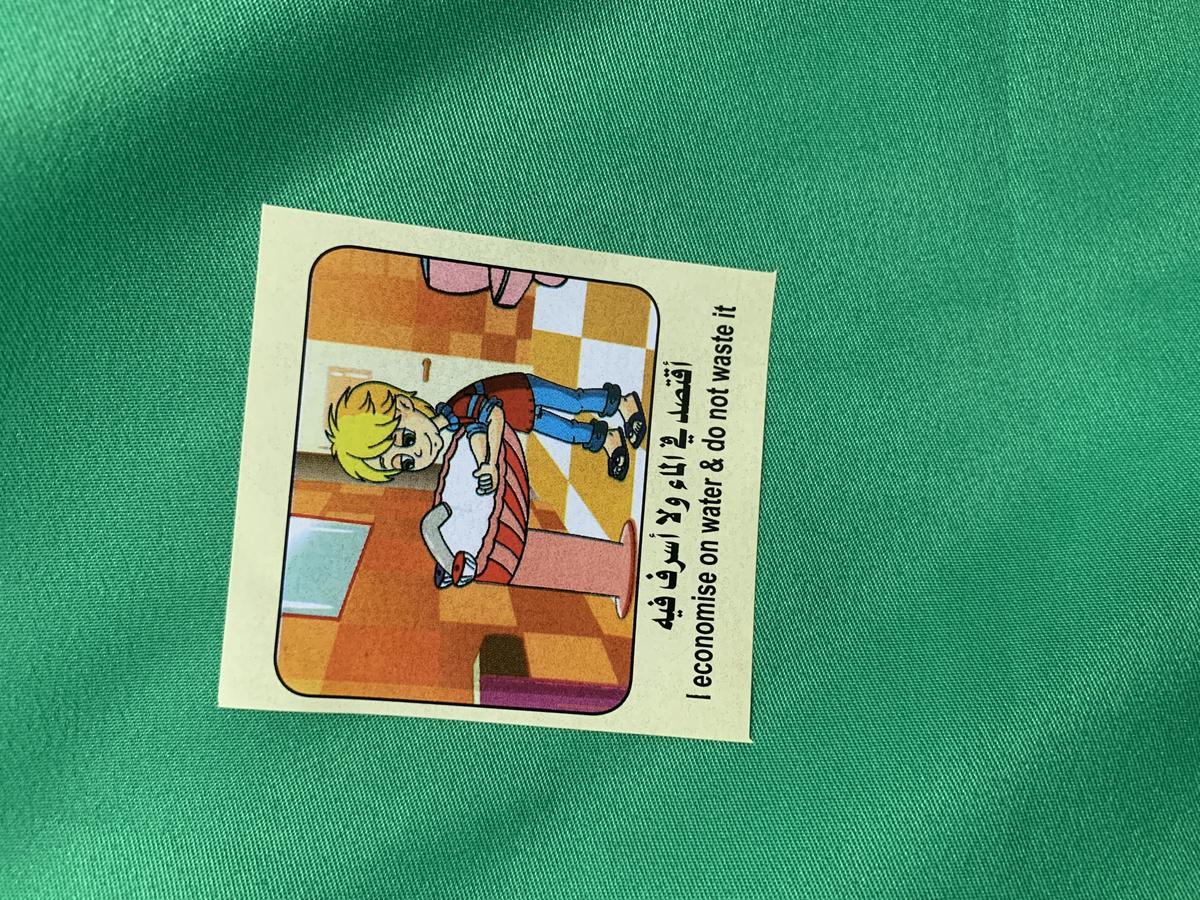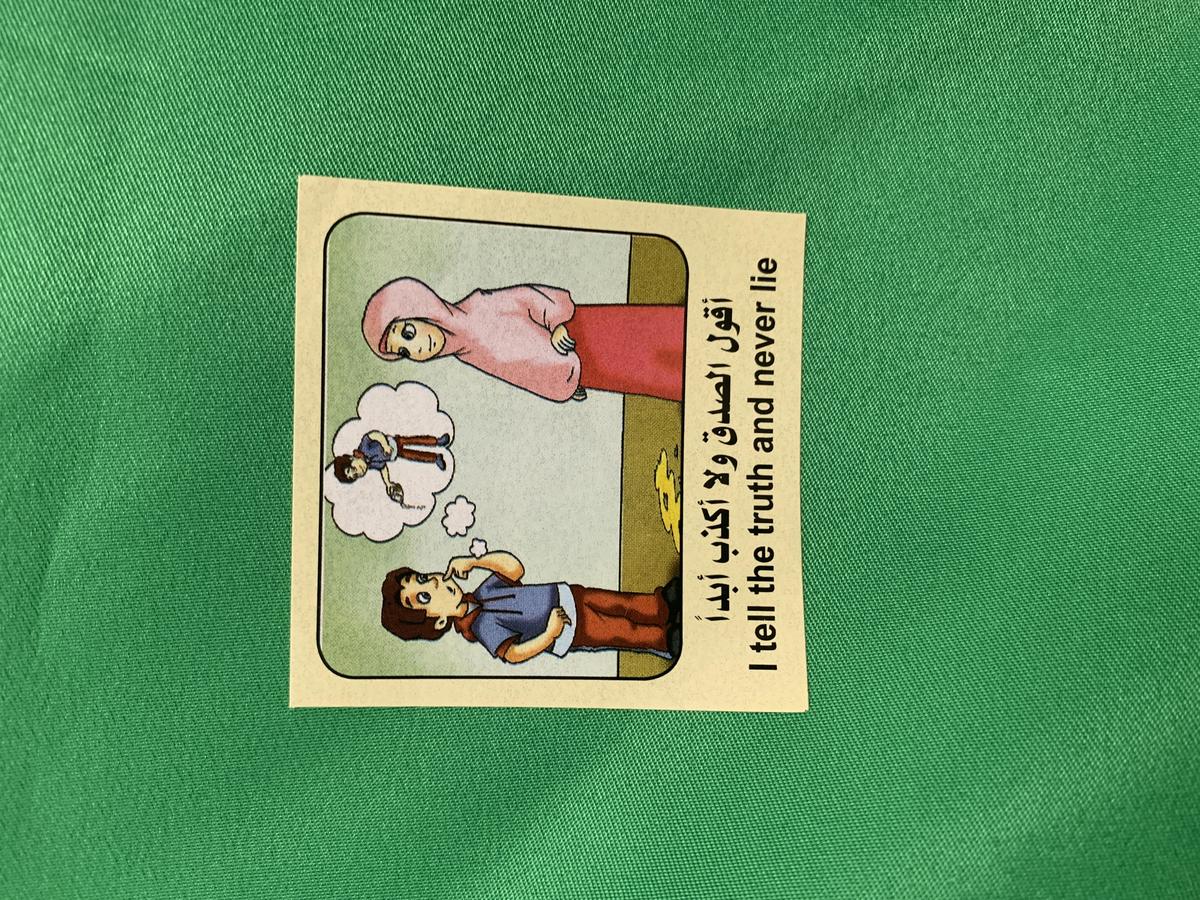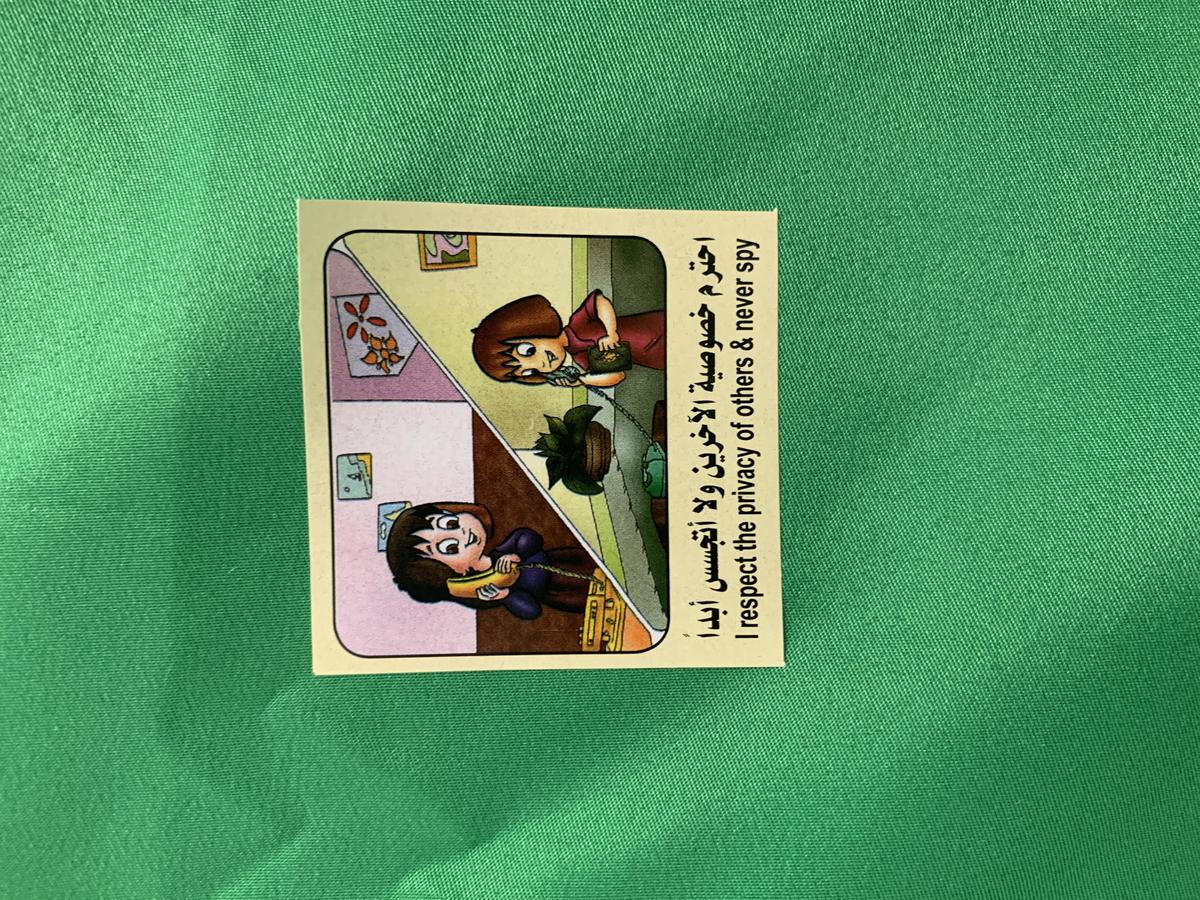Farah Al Qasimi, General Behavior, 2020
Dear Farah,
I’ve been journaling a lot lately. It makes me feel sheepish. Introspection is hard. I try out prompts. Earnest self-help questions. Stuff like, “What is your definition of home?” or the more vague, “Do you feel seen?” About this last, I wrote the words “WTF does this even mean?” The question stayed with me, though, and I did eventually come around to writing a personal definition. Of “to be seen,” I mean. It went like this:
“I think it involves a kindred recognition. A quiet kind of acknowledgment of experiences or other unsayable kinds of sympathies. It’s knowing that some things don’t have to be said. Or written. Or for that matter read.”
Sounds like a relief. Doesn’t it? Especially for people who are constantly asked to explain themselves.
Maybe, even, people like us?
You and I were both born into culturally mixed families, albeit mixes that come with a dose of white-adjacent privilege. You understand how exhausting it is to be placed in that cultural go-between place; ostracized by strangers we’re expected to call our kin, exoticized by the rest.
We were just a few minutes into our first Facetime date when I felt that third-eye kinda oh hiiiii. A familial feeling smudged between the pixels of your face. It’s a species of sight directed both inward and outward at once.
It’s what allows us to talk.
In shorthand.
Long-form.
In video.
In code.
And we do.
About the big-little everythings that seem to be on both of our minds ATM. Things like Gulf ethnocracies and labor camps and Arab anti-blackness or the plight of an abused Kuwaiti trans woman named Maha Al-Mutairi and the complicated meaning of the word “solidarity.” I can’t imagine talking about all of this with you even just a few months ago. Then again who would have imagined that our countries would be locked in a quiet cold-war or that we’d be grounded thanks to a global pandemic?
I felt seen by you. And your work.
The first time I watched your video, I recognized a series of stock morality stickers. The kind of Islamic paraphernalia that used to pop up in school stationery shops when I was little.
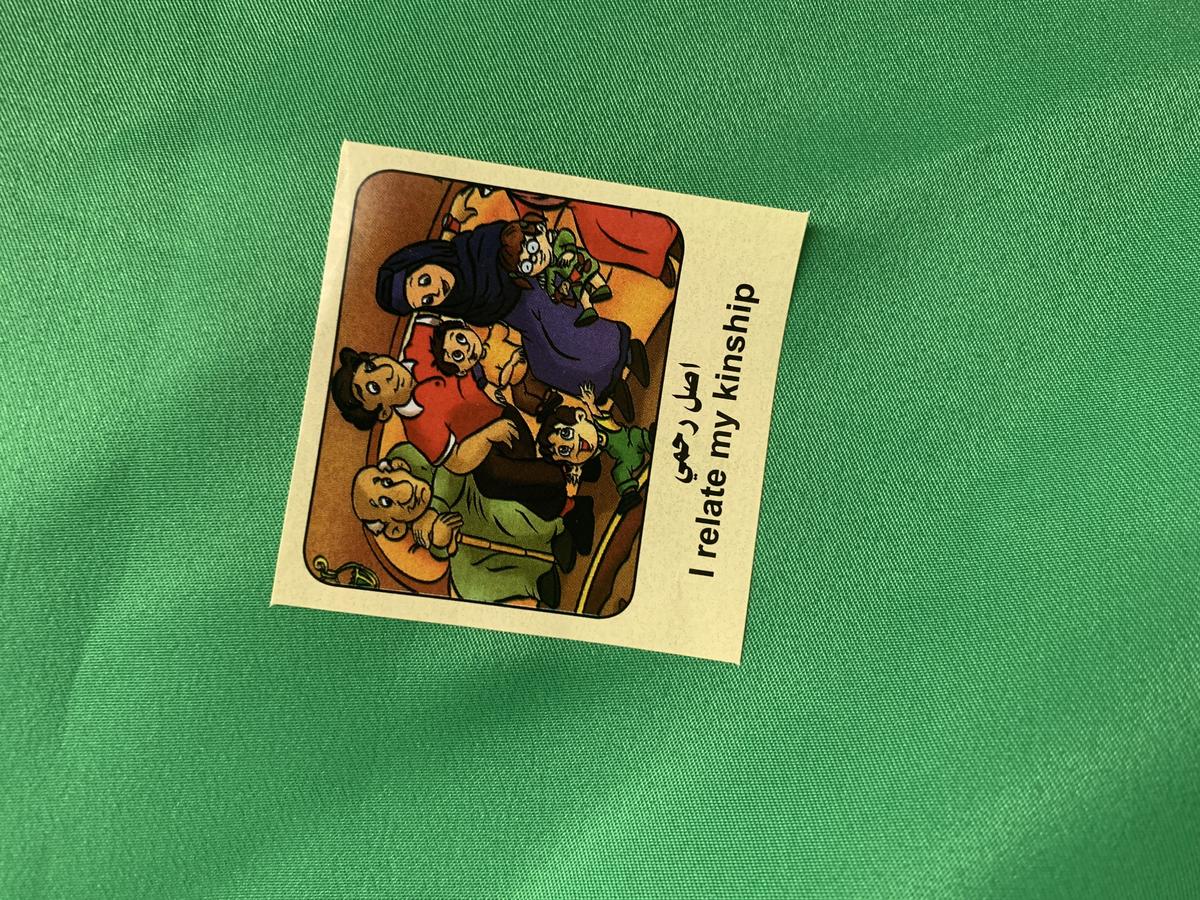
You tell me your video takes its name from the sticker pack’s own: General Behavior. These are almost certainly the same set given to me as a teenager by a concerned aunt who hoped I might finally “accept my religion.” The cards communicate things like, “Tell the truth and never lie,” or, “I thank Allah.”
In particular, I pause upon a scene in one card depicting a nuclear family. Everyone’s gaze in the drawing is telling of heteronormative Arab and Muslim ideals. The grandfather gazes lovingly down the generations. The young patriarch has an arm placed proprietorially around the presumed mother of three small children. The oldest one appears to be a boy and is mirroring his father’s possessive pose with the young matriarch. The daughter is kept close and looks like the mother’s hand puppet in bottle-cap glasses. A second female figure is cropped out of the image, although her arm is visible at the periphery of the girl-child.
Only the younger brother escapes.
Looking up-out in the direction of where a TV might sit.
Deranged grin on his face.
Probably watching Toyor Al-Jannah.
The longer I look at it, the more unsettled I feel about this illustration of familial power dynamics. I linger over the phrase, printed first in Arabic as اصل رحمي, then in English as, “I relate my kinship.” To me, there’s really nothing relatable about this image.
For one, they’re sitting on a couch, not on the floor. It’s not clear if it’s a majlis or a salah. Their skin is very light. The old man is in a galabeya and the younger one wears western clothes. I imagine this was drawn by an Egyptian.
When I was 17 and given these card-dictums, I thought I wanted the kind of life captured in this picture. I moved to Egypt for university and was pretty pious for a while. I thought about marriage and made lists of baby names.
Now I’m nearly forty, and when I think of the word “kin,” I think about my <3s in GCC, I think about friends new and old, queer luvs, sibs, moms, and dads who fill my life with joy.
“I relate my kinship” is an awkward translation. Isn’t it? I entered it into GCC translate (our WhatsApp group):
SAM: Hey how would you guys translate اصل رحمي ؟
AAQ: وصل = connect الرحم = uterus
AAM: Yeah, basically “blood thicker than water”—not to sever the womb connection, cancel family
AAQ: But it’s more about connecting to family صح ?
KAG: Kinship?
SAM: But wait mind blown. Kinship = uterus?
KAG: Lol but more visceral organ connection
Farah, we both work in the English language. And we’ve both been told that this means our work panders to a “western” perspective. I hate this metric. We’re stuck between a rock and a hard place. Using Arabic in the contexts in which we work can be read as pandering to an appetite for the exotic.
Like, fuck that. As my aunties would say about an annoying child who won’t leave you alone, “Just don’t give them face.”
All of this reminded me of a line in this Etel Adnan book I’ve been reading, There: In the Light and the Darkness of the Self and the Other: “And why this presence? Does this crowd concern you or me? Can I have anything which will not be shared and what would it be?”
If you don’t figure out how to communicate your story, someone else will project a narrative onto you. And that projection represents real violence. The pretension of knowing anyone or anything better than the subject themselves upsets me. That’s why I love writing in the first-person. The “I/we” POV. And that’s why I love reading diaries. Your video reminds me of a diary entry.
The form also rejects the shame people have around private lives and first-person narratives and that’s an act of generosity for anyone struggling with that shame who sees it. I liked it when you said to me, “The people in the work are the audience.” That’s really real.
Today I was walking past the Marx Memorial Library in Clerkenwell and listening to an interview you once gave in which you talk about your music. You mention Pauline Oliveros. That’s funny, because I was just reading Deep Listening. I underlined this bit:
“Even though an experience may seem not worth writing down, your perspective may change later, especially in the context of many different experiences recorded through time. Allow your inner critic to relax and be calm while you have the opportunity to record your experiences without censorship. A word, a fragment, or a paragraph can later trigger your memory or your imagination and yield an enormous amount of information. Your journal can be as linear or non-linear as you wish.”
The passage reminds me of your meandering, free-form narrations. A way of sliding through a story that I feel such a strong relation to—of lingering over the detritus of a day, the unremarkable pieces of zift floating along the edges of a conversation, the jelly stickers on the edge of a laptop screen, the cropped video of men touching each other’s asses while dancing, the tapping of jiggly Jell-O, curtains, your best friend’s voice. This is that dreamy dissociative child wave we can meet on.
There’s a moment in the video when you say this:
“I passed the mango tree and for some reason it reminded me of this story that Mama Hassa used to tell us. When she was a little girl she was walking home from school with her sister Sheikha. All of a sudden she found herself in a field full of headless camels. My father says it’s a dream, not a memory. But I don’t really see the need for a distinction. I think it’s a good story.”
I don’t see a need for distinction either.
I wonder if this resistance to definition is part of our kinship. I feel like the imposition of the two-faced Janus life of the threshold baby has led us to similar conclusions: The truth of a story isn’t about the facts but about the storyteller’s perspective. The fact of family isn’t in the blood.
I go back to the “I relate my kin” sticker. And I think about the impossibility of translation. And I think about my favorite Arabic word, “goom.” No one uses it anymore. I ask my father for a translation:
“Goom is like somebody have different culture, different look. Stranger. Al-Marri people say, don’t marry from them, and, don’t trust them, like you should be scared from them, but you also admire them little bit. That’s goom.”
It’s specifically an Al-Murrah bedouin word, now almost extinct.
And then I think about my favorite English word, “grok,” a neologism coined by Robert Heinlein in his sci-fi classic Stranger in a Strange Land. He writes, “Grok means to understand so thoroughly that the observer becomes a part of the observed—to merge, blend, intermarry, lose identity in group experience.”
Grokking isn’t always a given. But when two gooms get each other, it’s a gift.
Your,
Goom
